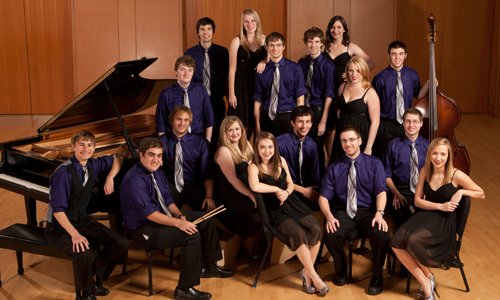Tuesday, February 5
| 10:00 a.m.-12:00 p.m. | "Trees: A Community Asset," Patricia Farrell & Deborah Topp [J. Lloyd], Ford 122 We will discuss the benefits of trees, Salem’s tree canopy studies, and how trees can help the city meet its permit obligations while improving community health and livability. Patricia Farrell is a Natural Resource Specialist with a background in biology and landscape architecture. Deborah Topp is a Natural Resource Outreach Specialist with a background in plant ecophysiology. |
| 1:00-3:00 p.m. | "Roads Less Traveled," Steve Arndt [Eunice Porter], Ford 122 Steve Arndt has written six books in the series entitled “Roads Less traveled in Oregon.” His books take us to all areas of the state–especially along its backroads and byways. The series leads modern explorers on thousands of miles of routes and explains what they will find along the way.
Steve, his wife Diane, and their now-grown children have spent many weekends and school vacations exploring Oregon back roads and off-the-beaten-track places. Today, their car is filled with child safety seats for young granddaughters who have begun road trips with grandma and grandpa. |
Thursday, February 7
| 10:00 a.m.-12:00 p.m. | "The History of the Chemawa Indian School," Rebecca Dobkins [Sharon Wright], Ford 122
Dr. Dobkins joined Willamette faculty in 1996, after working as a researcher at the Smithsonian Institution's National Museum of Natural History. Interests include museum studies, Native American contemporary and traditional arts, Maori (New Zealand) arts, and the indigenous peoples, human rights, and the environment. As a curator at the Hallie Ford Museum of Art, Dobkins has organized exhibitions of Native American art that have toured nationally and internationally. Projects include the exhibition The Art of Ceremony: Regalia of Native Oregon, which was awarded a National Endowment for the Arts 2008 American Masterpieces grant. Just announced is the receipt of the Earle A. Chiles Award by Dr. Dobkins for advancing native American artistic expressions. |
| 1:00–2:00 p.m. | "The Joy of Statistics," Video Lecture, Hans Roslin [G. Adkins], Ford 122 Hans Rosling says there’s nothing boring about stats, and then goes on to prove it. A one-hour long documentary produced by Wingspan Productions and broadcast by BBC, 2010.
This video presentation will be divided into two parts, one to be shown in this hour, the other in the 2:00 to 3:00 p.m. hour. |
| 2:00 - 3:00 p.m. | "The Joy of Statistics," Supplementary Presentation, George Adkins, Ford 122 "The Joy of Statistics" video (continued). Much of Rosling's research has focused on links between economic development, agriculture, poverty and health. In addition to the video, the Trendalyzer statistical animation software will be demonstrated, and used to explore some statistics relating to global health. |
Tuesday, February 12
| 10:00 a.m.-11:00 p.m. | "The Oratorio, Video Lecture 13," Dr. Robert Greenberg [S. Holmquist, J. Miller], Ford 122
The two most important genres to evolve in Baroque sacred music were the oratorio and the Lutheran church cantata. The Baroque oratorio, marked by an exuberance not found in the Renaissance mass, incorporated elements of opera. Oratorio evolved in Italy as a substitute for opera, which was banned during Lent. From modest beginnings as a musical setting of a biblical text, oratorio grew in popularity as an unstaged opera on a religious subject. In England, oratorio became enormously popular thanks to the creative power of George Frederick Handel, whose Messiah was, from the outset, one of the most popular pieces ever written. |
| 11:00 a.m. –12:00 p.m. | "Heinrich Schutz’s 'Historia von Geburt Herr Jesu Christ'," Lecture-Demonstration, Solveig Holmquist, Ford 122 Oratorio became an enormously popular genre in the years following Messiah’s first performance, often featuring lengthy performances by gargantuan forces (choirs numbering in the hundreds) during the 19th century. Huge groups, producing huge sounds, became the norm in the new performance halls, particularly in England. The new middle class, with more time and money, flocked to hear oratorios such as Elijah, the masterwork by Felix Mendelssohn. Early oratorios that were created for the edification of the faithful are often neglected today. This lecture-demonstration features the Christmas oratorio by Heinrich Schutz, the master composer born 100 years before Bach. The work is rich with symbolism, character stereotypes, text painting, and humor: just the thing to keep early Protestant churchgoers awake, warm, and amused in a freezing-cold North German church in December.
Dr. Holmquist received her musical training at St. Olaf College in Northfield, Minnesota, where she sang with the renowned St. Olaf Choir; at Western Oregon State College; and at the University of Oregon. Her professional affiliations include the American Choral Directors Association, serving as President of the Oregon chapter from 2003-2005 and also as a Repertoire & Standards Chair on the Northwest Board. She was President of Oregon Music Educators National Conference from 1992-1994, and of the Northwest Division of the American Choral Directors Association. |
| 1:00-3:00 p.m. | "Worldviews within WIllamette," Nomi Pearce, Language in Motion Coordinator [T. Zook], Ford 122 Language in Motion (LiM) is a community outreach program that provides a volunteer opportunity for international students, study abroad returnees and language assistants to share language and culture in the community. In its sixth year, LiM has provided nearly 400 presentations. It provides Willamette University students a unique opportunity to share culture and language with students in the Salem-Keizer school district. Study abroad returnees, international students and language assistants are invited into local classrooms to provide learning opportunities for elementary, middle and high school students.
|
Thursday, February 14
| 10:00 a.m.-12:00 p.m. | "Student Retention: Why Students Fail College and College Fails Students," David Douglass, Dean of Campus Life [ J. Flaming], Ford 122 Description TBA
|
| 1:00-2:00 p.m. | "Language Families – Tracing Indo-European," Language Video, Prof. John McWhorter [G. Adkins], Ford 122
How can we know what a proto-language was like? This is definitely a job for those who like puzzles, as it was not a written language. Professor McWhorter takes us through some of the logic in deciphering the original word for ‘sister-in-law’ as an example of comparative reconstruction. He also gives examples of extinct written languages recently discovered, and relates human migration to the evolution of the Indo-European language group. This lecture will be hosted by Peter Ronai. |
| 2:00–3:00 p.m. | "Hard Thoughts and Jealousies," Nancy Richings, Ford 122 The times and trials of my 9-times-great grandmother, Goodwife Mary Parsons who was tried for being a witch in 1674.
|
Tuesday, February 19
| 10:00 a.m. | "Historic School Names," Billijean Hill [P. Rasmussen], Ford 122 Names of Salem high schools and grade schools, which are named for local individuals.
|
| 11:00 a.m. | "Leveraging the New to Showcase the Old," Mary McRobinson, University Archivist [I. Konopasek], Ford 122 Archival repositories collect “old stuff,” but the methods used to preserve, promote, and provide access to the materials are "cutting-edge." Learn how Willamette’s Archives and Special Collections is utilizing the latest technology to increase access to collections—including ICL’s.
|
| 1:00-3:00 p.m. | "Manuel Izquierdo: Myth, Nature and Renewal," Roger Hull [Sharon Wright], Ford 122 (possible Hallie Ford Museum venue TBA) Professor Emeritus Roger Hull will talk about the life and artistic legacy of Izquierdo as pertains to a major retrospective show currently in three galleries at Hallie Ford Museum of Art. Manuel Izquierdo was an important Portland sculptor and teacher who created sculptures in steel, wood, and stone based on mythological figures as well as abstract and biomorphic plant and animal forms. Organized by Professor Hull, the exhibition will feature a range of works from the past 60 years drawn from public and private collections throughout the region.
|
Thursday, February 21
| 10:00 a.m.-12:00 p.m. | Great Decisions: "Iran," Richard Francaviglia [J. Flaming], Ford 122
Dr. Francaviglia last spoke to ICL in December, 2012 on "Understanding Islam." |
| 1:00-3:00 p.m. | "Career Decision Making," Jerry Houser, Associate Dean and Director of Career Services at WU [D. Gallagher], Ford 122 Dr. Jerry Houser, Associate Dean and Director of Career Services at Willamette University, will discuss Career Services at WU and other universities, employment trends nationally and locally for college students, and student issues around career decision-making. He will also update us on technologies that are now being used in employment such as social media, web pages, personal portfolios, how the job market is different now than when ICL members were employed, what employers look for in today's graduate, and also the different characteristics of the Millennials (roughly the age group of ICL grand kids).
|
Tuesday, February 26
| 10:00 a.m.–12:00 p.m. | "Experimentation and Uses for Solar Energy" Dorothy Dobson & Jan Miller, Ford 122
Dorothy and Jan will also present information about the developing field of solar energy. |
| 1:00-3:00 p.m. | "Family Entanglements in Poetry – or – Is Every Family as Weird as Ours?" Colette Tennant [Lois Rosen], Ford 122 When my youngest son was five years old, he asked me, “Mom, do you think every family is as weird as ours?” I replied, “Yes, Sweetie, the more you get to know families, the weirder they become.” George Burns, the comedian, once quipped, “Happiness is having a large, loving, caring, close-knit family in another city.” Poets and writers have been dealing with and writing about family entanglements since writing began. George Bernard Shaw wrote, “If you cannot get rid of the family skeleton, you may as well make it dance.” I think that’s a good description of how poets take their family complications and reflect them in their work–sometimes they waltz–and sometimes they wrestle in a mosh pit! For the first hour, my son–who is also a poet–and I will read some poems we have written about family as well as poems by well-known writers on this complicated subject. For the second hour, we will write poems on this fun, complex, entertaining topic.
|
Thursday, February 28
| 10:00 a.m.–12:00 p.m. | "Economic Challenges in the U.S. and the Eurozone," Michael Dothan [M. Kasoff], Ford 122
|
| 12:50-2:10 p.m. | ICL Visits a Rehearsal of the Award-Winning Willamette Singers* [S. Holmquist, J. Miller], Mary Stuart Rogers Music Center
Willamette Singers is a vocal jazz group joining 12 solo voices with piano, bass and drums. Led by Professor Wallace Long, Willamette Singers shares performance dates with the Jazz Ensemble for the popular “Jazz in Smith” series as well as for the Puttin’ on the Ritz jazz dinner dance. Recent off-campus performance venues include Hawaii, Washington, Idaho, California, Indianapolis, New Orleans, Boston and Japan. In 1999, the group was invited to perform at the American Choral Directors Association national convention in Chicago. We currently have eleven jazz recordings by the Willamette Singers including the newest CD, Take the "A" Train. *IMPORTANT NOTE FROM SOLVEIG HOLMQUIST Hello, ICL friends, There are some special instructions connected to our attendance at the rehearsal of the Willamette Singers (Vocal Jazz Group) on Thursday, February 28. Please do your best to help with this, as the Singers are in final preparation for an invited performance at the national conference of the American Choral Directors Association in Dallas, Texas, a very high honor for them and the university. Here's the schedule for us that afternoon: 12:50 Quietly enter the Rehearsal Room in Mary Stuart Rogers Music Building. Chairs will be set up for us. The singers will be warming up and setting up equipment. 1:00 Brief introduction and greeting, with explanation of their program by their director, Dr. Wallace Long, Jr. The group will then present its conference program. This is one of many trial runs they must do in the days before departure: timing is a very important aspect, since performing groups are held to a strict 40-minute time limit. 1:50 (approximately) At the conclusion of their performance/rehearsal, the students and Dr. Long will be happy to answer questions. 2:10 At this time, it is imperative that the singers put their equipment away and prepare to vacate the room by 2:20, since the next ensemble will need the 10-minute cushion to set up for their 2:30 class. WE MUST LEAVE EFFICIENTLY AT 2:10, TO GET OUT OF THEIR WAY. PLEASE DO NOT LINGER TO CHAT WITH EACH OTHER OR WITH THEM! PLEASE EXIT QUIETLY AND QUICKLY! I'm very grateful that they're sharing their rehearsal with us at this crucial time, and don't want to wear out our welcome. 2:15 Recess and early release for ICL. Thanks for understanding about this shortened schedule. I promise to keep you late at the next music session. Thanks,Solveig Holmquist |


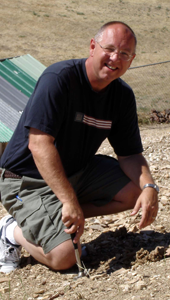 Steve Arndt grew up in rural Independence, Oregon during the state’s centennial, a setting that kindled his curiosity about the region’s history. After earning a degree in elementary education from Oregon College of Education (now Western Oregon University), Steve completed advanced degree coursework in special education at OCE, school administration at Portland State University, and his school superintendent credentials at the University of Oregon. In his 40-year career in education, Steve served various Oregon public schools as teacher and administrator, and completed his last nineteen years in higher education as senior associate professor of teacher education, including ten years as a department chair.
Steve Arndt grew up in rural Independence, Oregon during the state’s centennial, a setting that kindled his curiosity about the region’s history. After earning a degree in elementary education from Oregon College of Education (now Western Oregon University), Steve completed advanced degree coursework in special education at OCE, school administration at Portland State University, and his school superintendent credentials at the University of Oregon. In his 40-year career in education, Steve served various Oregon public schools as teacher and administrator, and completed his last nineteen years in higher education as senior associate professor of teacher education, including ten years as a department chair.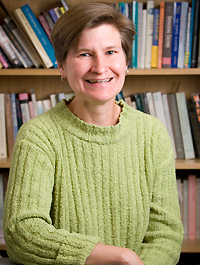 Dr. Rebecca Dobkins is the faculty supervisor for the Chemawa Indian School-Willamette University Partnership Program, a collaborative community service learning project. She and her WU students will share their summer project at Chemawa with us.
Dr. Rebecca Dobkins is the faculty supervisor for the Chemawa Indian School-Willamette University Partnership Program, a collaborative community service learning project. She and her WU students will share their summer project at Chemawa with us.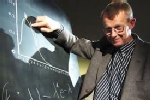 Hans Rosling is a Swedish medical doctor, academic, statistician and public speaker. He is Professor of International Health at Karolinska Institute and co-founder and chairman of the Gapminder Foundation.
Hans Rosling is a Swedish medical doctor, academic, statistician and public speaker. He is Professor of International Health at Karolinska Institute and co-founder and chairman of the Gapminder Foundation.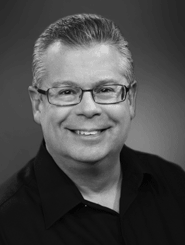 Professor Greenberg continues his lecture series on music of the Baroque.
Professor Greenberg continues his lecture series on music of the Baroque.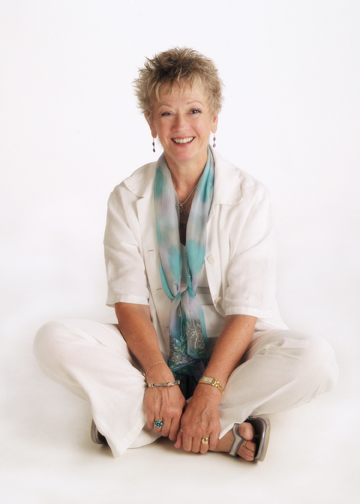 ICL member Solveig Holmquist recently retired as Professor of Music, Choral Studies and Conducting at Western Oregon University. She is the founder and Artistic Director of the Festival Chorale Oregon, a civic choir in its 28th season which has developed a reputation for musical excellence in Oregon and in the international community. Festival Chorale Oregon has enjoyed performing tours through Germany, France, Scandinavia, Austria, Switzerland, the Czech Republic and Spain. At home, FCO regularly performs major choral/orchestral works for Willamette Valley audiences.
ICL member Solveig Holmquist recently retired as Professor of Music, Choral Studies and Conducting at Western Oregon University. She is the founder and Artistic Director of the Festival Chorale Oregon, a civic choir in its 28th season which has developed a reputation for musical excellence in Oregon and in the international community. Festival Chorale Oregon has enjoyed performing tours through Germany, France, Scandinavia, Austria, Switzerland, the Czech Republic and Spain. At home, FCO regularly performs major choral/orchestral works for Willamette Valley audiences.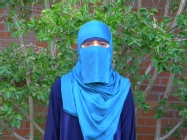 I am Khadijah Mubaraki, an international student from Saudi Arabia, fluent in Arabic and English. I seek an opportunity to develop in-depth skill and knowledge of auditing practices in a multi-cultural setting. Reading is my favorite activity. I have a high level of curiosity to learn about cultures and religions worldwide.
I am Khadijah Mubaraki, an international student from Saudi Arabia, fluent in Arabic and English. I seek an opportunity to develop in-depth skill and knowledge of auditing practices in a multi-cultural setting. Reading is my favorite activity. I have a high level of curiosity to learn about cultures and religions worldwide.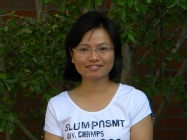 I am Liujuan Li from China. Cantonese is my first Language, and I also am good at Mandarin. I am eager to improve my English and speaking skills. I would like to introduce Chinese culture to foreign people who have curiosity about other cultures. I know a lot of nice people since I reached USA, and I am glad to meet more great people!
I am Liujuan Li from China. Cantonese is my first Language, and I also am good at Mandarin. I am eager to improve my English and speaking skills. I would like to introduce Chinese culture to foreign people who have curiosity about other cultures. I know a lot of nice people since I reached USA, and I am glad to meet more great people!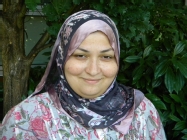 My name is Diaa. I came from Egypt. Long distance. isn't it :) I worked in many positions for the Egyptian Ministry of Health, since I'm a doctor & interested in management as well as IT stuff. My last position was committee member for developing strategic plan for the Egyptian Ministry of Health Training Center to include all working staff as well as medical team to develop their skills. I'm here to have more hands-on practice on management. I'm happy to tell you about my culture.
My name is Diaa. I came from Egypt. Long distance. isn't it :) I worked in many positions for the Egyptian Ministry of Health, since I'm a doctor & interested in management as well as IT stuff. My last position was committee member for developing strategic plan for the Egyptian Ministry of Health Training Center to include all working staff as well as medical team to develop their skills. I'm here to have more hands-on practice on management. I'm happy to tell you about my culture.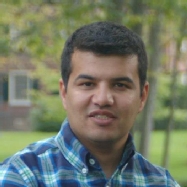 I'm Mohammad Hamid from north of Afghanistan. I got US government Fulbright scholarship to do my masters in business administration. I have got almost 9 years of experience with not-for-profit organizations that includes Oxfam GB and ACTED in HR field in different level starting from Assistant to country HR Manager. I did my bachelor in Business Administration from Kardan Institute of Higher Education in 2010.
I'm Mohammad Hamid from north of Afghanistan. I got US government Fulbright scholarship to do my masters in business administration. I have got almost 9 years of experience with not-for-profit organizations that includes Oxfam GB and ACTED in HR field in different level starting from Assistant to country HR Manager. I did my bachelor in Business Administration from Kardan Institute of Higher Education in 2010.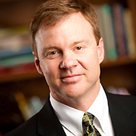 David Douglass, Dean of Campus Life, was hired at Willamette in 1990 as an assistant professor of
David Douglass, Dean of Campus Life, was hired at Willamette in 1990 as an assistant professor of 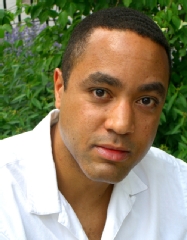 This is Lecture 9 in the video series on Language by Prof. John McWhorter.
This is Lecture 9 in the video series on Language by Prof. John McWhorter.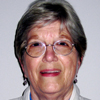 Nancy Richings has been a member of ICL since 2006. She was a teacher in her former life and worked as a neighborhood coordinator for the City of Salem. She finished her career working at the Salem Public Library. She has been doing family history research for the past 40 years and dug up some interesting family stories during those years.
Nancy Richings has been a member of ICL since 2006. She was a teacher in her former life and worked as a neighborhood coordinator for the City of Salem. She finished her career working at the Salem Public Library. She has been doing family history research for the past 40 years and dug up some interesting family stories during those years.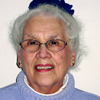 Billijean Hill is a U. of Oregon graduate and a former 1st grade teacher. She loved travel and has visited 74 countries. She has been an ICL member since 2004. With a passion for theatre, she directed ICL play readings for six years. Billijean has raised seven children and is active in the volunteer community. She currently has a book of personal essays being published
Billijean Hill is a U. of Oregon graduate and a former 1st grade teacher. She loved travel and has visited 74 countries. She has been an ICL member since 2004. With a passion for theatre, she directed ICL play readings for six years. Billijean has raised seven children and is active in the volunteer community. She currently has a book of personal essays being published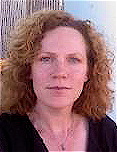 Mary McRobinson is the University Archivist at Willamette University, a position she has held since March 2006. Before joining Willamette University, Mary was employed for five years at the University of Georgia, where she was Head of the Descriptive Services Unit at the Richard B. Russell Library for Political Research and Studies. She received her M.L.I.S. with an emphasis in archival enterprise from the University of Texas-Austin and her B.A. in history from the University of Nebraska-Omaha.
Mary McRobinson is the University Archivist at Willamette University, a position she has held since March 2006. Before joining Willamette University, Mary was employed for five years at the University of Georgia, where she was Head of the Descriptive Services Unit at the Richard B. Russell Library for Political Research and Studies. She received her M.L.I.S. with an emphasis in archival enterprise from the University of Texas-Austin and her B.A. in history from the University of Nebraska-Omaha.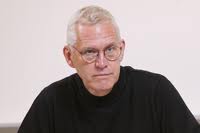 Roger Hull is Professor Emeritus of Art History. From 1970 to 2010 he taught courses at Willamette University on Renaissance, American, and Modern art. He now lectures periodically, often on topics in Pacific Northwest art. He envisioned and helped establish the Hallie Ford Museum of Art and is the Senior Faculty Curator at the museum. He is also a member of the Editorial Board, Oregon Encyclopedia Project, and a member of the Oregon Arts Commisssion. In 1993 he was Oregon Professor of the Year, awarded by the Council for the Advancement and Support of Education.
Roger Hull is Professor Emeritus of Art History. From 1970 to 2010 he taught courses at Willamette University on Renaissance, American, and Modern art. He now lectures periodically, often on topics in Pacific Northwest art. He envisioned and helped establish the Hallie Ford Museum of Art and is the Senior Faculty Curator at the museum. He is also a member of the Editorial Board, Oregon Encyclopedia Project, and a member of the Oregon Arts Commisssion. In 1993 he was Oregon Professor of the Year, awarded by the Council for the Advancement and Support of Education.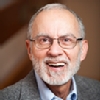 Professor Richard Francaviglia will be our presenter. Before retirement Dr. Francaviglia was Professor of History and Geography at the University of Texas at Arlington, where his main interests were history and the geography of religion. He has published eleven books and monographs. Since 2011 he has continued teaching in Religious Studies and Anthropology at Willamette U.
Professor Richard Francaviglia will be our presenter. Before retirement Dr. Francaviglia was Professor of History and Geography at the University of Texas at Arlington, where his main interests were history and the geography of religion. He has published eleven books and monographs. Since 2011 he has continued teaching in Religious Studies and Anthropology at Willamette U.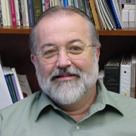 Jerry has a B.A. (Psychology and Religion, Azusa Pacific University), M.A.(Social Science, Azusa Pacific University), M.B.A. (University of Redlands), and Ph.D (Counseling Psychology and Administration, University of Southern California). Jerry has worked in career services for over 25 years. He has counseled and coached thousands of students and alumni, taught courses in leadership, psychology, and career development in the US as well as over 20 countries abroad, including Africa, South America, Asia, Europe and South Pacific. His long term passion is to help students discover their own career passions and find success in their chosen vocations.
Jerry has a B.A. (Psychology and Religion, Azusa Pacific University), M.A.(Social Science, Azusa Pacific University), M.B.A. (University of Redlands), and Ph.D (Counseling Psychology and Administration, University of Southern California). Jerry has worked in career services for over 25 years. He has counseled and coached thousands of students and alumni, taught courses in leadership, psychology, and career development in the US as well as over 20 countries abroad, including Africa, South America, Asia, Europe and South Pacific. His long term passion is to help students discover their own career passions and find success in their chosen vocations.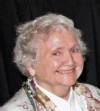
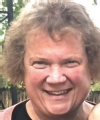 The presentation will include a one hour video about the World Solar Challenge. The Challenge is a 3000 km race across Australia by solar energy cars.
The presentation will include a one hour video about the World Solar Challenge. The Challenge is a 3000 km race across Australia by solar energy cars.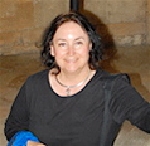 Colette Tennant was a visiting professor in English at Willamette University in 1994/1995 after receiving her doctorate from Ohio State University. Since then, she has been an English Professor at Corban University where she teaches creativing writing and various literature courses. She also teaches an art history course in Austria, Italy, and Germany through their study abroad program, Ambex. Her first book of poetry, Commotion of Wings, was published in 2010. Her book of literary criticism, Reading the Gothic in Margaret Atwood's Novels, was published earlier. Her poetry has been published in various journals, including Southern Poetry Review, Dos Passos Review, Christianity and Literature, and Cloudbank. Currently Colette is fine-tuning her second book of poetry. She enjoys playing the piano, writing music, and travel. Colette has three grown children and lives in Salem with her husband and three cats.
Colette Tennant was a visiting professor in English at Willamette University in 1994/1995 after receiving her doctorate from Ohio State University. Since then, she has been an English Professor at Corban University where she teaches creativing writing and various literature courses. She also teaches an art history course in Austria, Italy, and Germany through their study abroad program, Ambex. Her first book of poetry, Commotion of Wings, was published in 2010. Her book of literary criticism, Reading the Gothic in Margaret Atwood's Novels, was published earlier. Her poetry has been published in various journals, including Southern Poetry Review, Dos Passos Review, Christianity and Literature, and Cloudbank. Currently Colette is fine-tuning her second book of poetry. She enjoys playing the piano, writing music, and travel. Colette has three grown children and lives in Salem with her husband and three cats.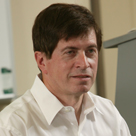 Recently, the global economy experienced a financial crisis and a recession. Now the US is undergoing a hesitant economic recovery, whereas Europe's economic imbalances produced another financial crisis there. American and European politicians and economic policymakers have been responding to developments amid growing controversy regarding the effectiveness of their policies. Who is right, and what are the likely near-term economic paths of the US and Europe?
Recently, the global economy experienced a financial crisis and a recession. Now the US is undergoing a hesitant economic recovery, whereas Europe's economic imbalances produced another financial crisis there. American and European politicians and economic policymakers have been responding to developments amid growing controversy regarding the effectiveness of their policies. Who is right, and what are the likely near-term economic paths of the US and Europe?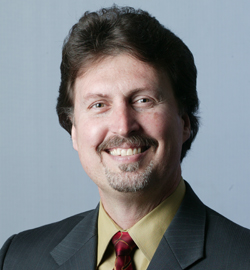 Willamette’s award-winning vocal jazz group, led by Dr. Wallace Long, will be in final preparation for its trip to Dallas, Texas to perform for the National Conference of the American Choral Directors Association. The Willamette Singers were selected for this honor by a rigorous, 3-step process, and are one of only a few NW ensembles to perform at the conference. We will have the fun of observing them in rehearsal, a more revealing and instructive experience than a performance can provide.
Willamette’s award-winning vocal jazz group, led by Dr. Wallace Long, will be in final preparation for its trip to Dallas, Texas to perform for the National Conference of the American Choral Directors Association. The Willamette Singers were selected for this honor by a rigorous, 3-step process, and are one of only a few NW ensembles to perform at the conference. We will have the fun of observing them in rehearsal, a more revealing and instructive experience than a performance can provide.